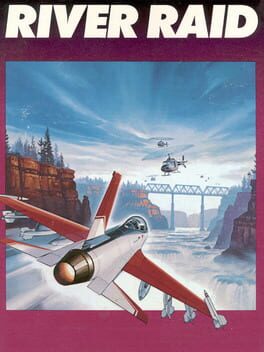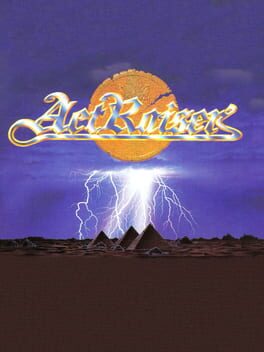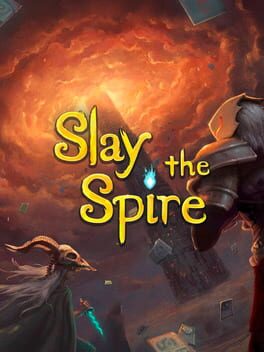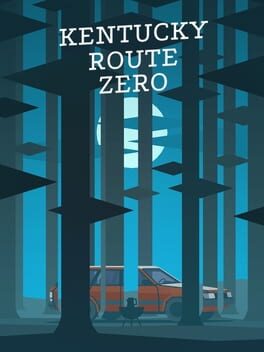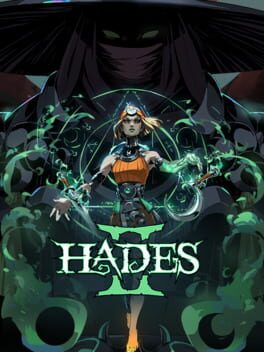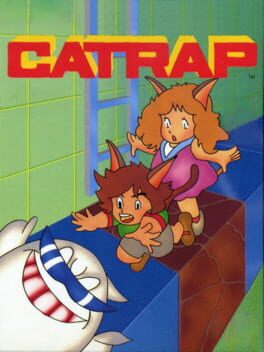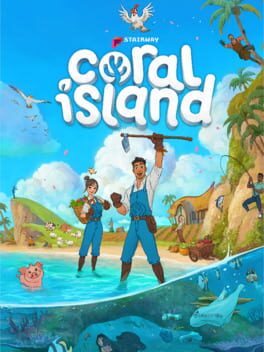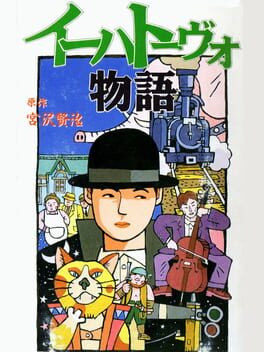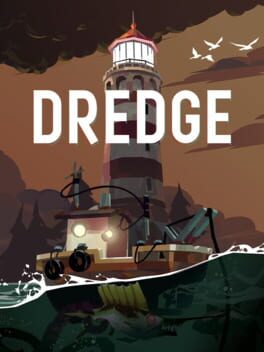tizaster
Favorites are just me picking a game from each decade [80s onward] to try to represent my general taste [it left out JRPGs, oh well]
Badges

GOTY '23
Participated in the 2023 Game of the Year Event

Donor
Liked 50+ reviews / lists

GOTY '22
Participated in the 2022 Game of the Year Event

Well Written
Gained 10+ likes on a single review

Shreked
Found the secret ogre page

Roadtrip
Voted for at least 3 features on the roadmap

Listed
Created 10+ public lists

Loved
Gained 100+ total review likes

Best Friends
Become mutual friends with at least 3 others

Organized
Created a list folder with 5+ lists

Clearin your Calendar
Journaled games at least 15 days a month over a year

Busy Day
Journaled 5+ games in a single day

3 Years of Service
Being part of the Backloggd community for 3 years

GOTY '21
Participated in the 2021 Game of the Year Event

Popular
Gained 15+ followers

Liked
Gained 10+ total review likes

Full-Time
Journaled games once a day for a month straight

On Schedule
Journaled games once a day for a week straight

Epic Gamer
Played 1000+ games

Elite Gamer
Played 500+ games

Noticed
Gained 3+ followers

Gamer
Played 250+ games

N00b
Played 100+ games

GOTY '20
Participated in the 2020 Game of the Year Event
Favorite Games
2613
Total Games Played
082
Played in 2024
440
Games Backloggd
Recently Played See More
Recently Reviewed See More
This review contains spoilers
In the early hours, I was delighted--finally, a new story I can get invested in with this series, one that's told coherently, with characters whose relationships I can follow. And while Active Time Lore™ was appealing to me up front--"remembering" my experiences with XIII and XV--I rarely even utilized it and could follow along just fine, only dipping in for deep dives driven by my own curiosity. Up front I had lamented the complete move to action combat, but I also braced for it knowing it was something they had been toying with already, and for what it's worth they managed to create a solid loop that expands into some decent variety over the course of the campaign, for a while.
But little by little, the foundations of my excitement began to crumble. A lot has already been said about FF16's treatment of women and its slavery/class narrative struggles, all criticism thoroughly justified. For me, it's how the game treats Jill specifically that paved the beginnings of its road to ruin. It's actually hysterical how much of an afterthought Jill is to the story they're telling, especially given that she's standing with you for nearly all of it.
It comes to be almost like a challenge the game puts forth to see how much worse her treatment can possibly get, to the point that it culminates in putting one particular endgame sidequest--which gives Jill an emotional moment with Clive and puts her "permanently" in your party until you proceed with the finale--behind another sidequest related to Clive's father. It is so easy to see a situation in which players put off that sidequest, imagining it to be a nice "final" one to go for, only to discover another with a key party member hidden underneath it--one where half the reward becomes potentially pointless as putting her in the party "for the rest of the game" might be actually zero time. And neither quest is marked with a signature plus-sign that indicates where the Real Rewards are, the "good stuff" like increasing how many potions you can hold or the ability to smith a weapon if you do hours of additional content to get the required crafting items from special enemies.
It sounds like a lot has been said about the game's sidequests as well. Here are my two cents: when FF16 sidequests are good, they are far and away the best content you can find in its runtime. Not because you get two more max potions, but because they spend more effort filling out the details of the world and some of the characters' relationships. They can be the strongest indication that the developers behind this world do actually like the people in it, can relate to their struggles and offer them glimpses of hope and camaraderie. But the sidequests are set up for failure from the start. They're introduced as strictly tedious chores, outside of one early on that gives the faintest hint of new character information after you've done the riveting task of finding a bag of supplies. And even when the narrative quality of the sidequests improves, that quality is still buried under artificial lengthening, long and unchallenging fights [I hope you like the raw feel of the combat a lot!], running [or fast traveling] back and forth.
Which is a long way of saying--by the time I reached the final barf-up of sidequest icons before the game's conclusion, it broke my heart but I was done with them. Full disclosure, in the face of my frustration a friend told me Jill had a sidequest dedicated to her amongst all these potential weeds, so when none of the quest descriptions suggested as much I straight up googled to find which quest it was. Imagine my surprise when I discovered it's because they didn't barf up all the icons up front.
This was the pivotal moment for me. Suddenly my mind was racing as it tried to reconcile what I had experienced for the past 45-50 hours. I marched on with the finale, trying to enjoy the "emotional payoff" of the story, but I was distracted by a dreadful feeling that dove into some weird kind of spiritual emptiness. And when the credits started rolling, I suddenly knew I had lost something and somehow hadn't seen it coming.
It took all that to realize what Final Fantasy as a series has truly meant to me. My first Final Fantasy experience was the now oft-maligned Final Fantasy VIII, which I still adore to this day. I rented Brave Fencer Musashi because it looked and sounded cool, but I maybe played it for half an hour tops because it came with a demo for FF8 that I immediately obsessed over, replaying a number of times before I had to return the demo along with the game I was supposedly renting. It was over for me. I would save money and get the full game in short order, and the next year saw both a heavy discount on Final Fantasy VII at a local store as well as my newly developed awareness of console emulation on my family's PC, opening the doors to all the SNES RPGs I couldn't afford. Super Mario RPG helped me discover RPGs, but Final Fantasy shot that appreciation into the stratosphere.
There are plenty of game series or creators that mean a lot to me, but Final Fantasy was probably the only one where my fondness went largely uncontested. I had my ups and downs with the games, but my love for them remained. It's also the only series that served as a foundational block for some of the closest friendships in my life, and while those relationships quickly didn't rely on those games, I don't know that they would have had that potential without that foot in the door.
I couldn't stop loving Final Fantasy games for a little over a decade, and then I played Final Fantasy XIII and experienced its relentless, nonsensical terminology. And Final Fantasy XV and its disinterest in anything beyond "vibes" of riding in a car across endless stretches of nothing. Yet I still loved Final Fantasy, still had expectations that when a new one came out I would be playing it. So what happened--why is that feeling now gone? Why wasn't this the result of playing XIII or XV? I would have initially guessed it's the aforementioned struggles with coherence that actually served as distractions, and that in the moment of playing both of those games I was convinced I was having some manner of a good time.
But it's now been literal months since I wrapped up XVI, and I feel I can more accurately pinpoint that, at the end of the day, even though I do not particularly like XIII or XV, I had an emotional reaction to them. I can poke fun at terms like L'Cie and Fal'Cie while marveling at XIII's clever battle system and beautiful sights. I can say however many times I like that XV's narrative left zero impression, but I will genuinely never forget the weirdo end-game side dungeon that I accidentally discovered, or buying soundtracks from other games in the series and putting them on for long car trips, or even just the meta insanity of putting out a game and expecting people to watch a prequel movie or potentially play a free beat-em-up for narrative clarity, like it was already worthy of that kind of dedication.
Almost as a defense mechanism, while watching FF16's credits I thought about Final Fantasy VII Remake, which I enjoyed a fair amount, so surely Final Fantasy isn't dead to me, but at the time it only made it worse. Sure I enjoyed it, but it was a different spin and presentation on a story I already loved, setting its laser sights on one of Final Fantasy's most iconic locales in Midgar. And in that focus they made some missteps--most notably the train graveyard sequence, a tedious expansion of a 2-3 minute moment in the original game. And now, as my brain dwells on that immediate gut reaction during the credits with the pondering that's occurred since, I've come to realize that it's because Final Fantasy XVI could have been practically any game released by a big studio in 2023, something I one thousand percent cannot say about XIII or XV.
As game development costs have increased exponentially, so too has the need for developers of massive commercial games to find ways to extend them under the false pretense that longer games with more content, prettier content, are inherently better or more worthy of purchase. And Final Fantasy--a series that has leaned into its bombastic production--is certainly not immune to that. Based on how Square always says their games underperform, they're even less likely to pivot to leaner, stronger experiences. The sidequests, as presented, are a solution to a game development "problem." Long dungeons with numerous repetitive encounters are another. Barely-interactive prolonged QTEs with elaborately produced cinematics are yet another. And Final Fantasy XVI indulges in all of these things.
At the end of the day, giving Jill a more impactful character arc--or just, I don't know, more to actually do in a game in which she's constantly present--both wouldn't have made a big difference to me with this particular title, and was also never going to happen. Not when it's easier to design a sidequest in which the player travels to three distinct locations and delivers items to NPCs and then reports that they did that and probably gets another goddamn meteorite; when it's easier to make another "castle" dungeon where you push a door open, kill some bads, walk down some stairs, kill some bads, climb up a ledge, kill some bads, and so on; when the budget is "better spent" creating a Sonic the Hedgehog-inspired spectacle shitstorm that refuses to end [shoutout to the Titan eikon fight!], because how else will people know their money was justified.
And so that special bond is gone. The Final Fantasy Experience now feels like some focus-tested husk. And that's ultimately fine. There are countless indie RPG developers interested in creating the sort of magic they grew up experiencing, whether it be Final Fantasy or Chrono Trigger or whatever, and while most will fail others will succeed in genuinely speaking to and understanding that era with their own spin. Hell, Square themselves is publishing those sorts of games, and creating them with smaller teams. So when I wish to dive into that kind of game, I will not struggle to find one. Doesn't mean some small part of me won't feel lost.
Playing Ihatovo Monogatari really helped put that into perspective for me. I've struggled with, and continue to struggle with, visual novels--not in the sense that I "don't think they're games" because who cares about that and hopefully most people have grown out of that level of bizarre gate-keeping, but in the sense that my interaction with many of them is pretty strictly driven by whether I feel compelled to read more text--occasionally with making choices so I can read how that text branches. When well-written I'm sure the genre is great, but they don't particularly excite me because it just makes me feel guilty about not reading books or watching films instead. They may have accompanying visuals and sounds that resonate and enhance, but for me they don't really have what makes games special.
Games like Ihatovo Monogatari are different because, as inconsequential as it may seem on the surface, having a physical avatar exploring a space to largely the same mechanical ends as a visual novel makes all the difference in the world to me. The game wouldn't be special without its pleasant world-building, characters and story, but those things are allowed to sing because I'm truly inhabiting the world as I explore it.
There are specific triggers needed to proceed--and that's where most of my problems with the game showed up, namely in the snow village chapter--but they're easier to forgive when your stumbling gives you the opportunity to soak in scenes; to see if that dog you passed earlier has something to say; to check in on the woman who sings outside her home; to stop by the theater to see if it's playing something new, or anything at all; to experience a new work from the local poet; and so much more. The synopsis for this game mentions "the opportunity to play the role of a temporary school teacher"--something I apparently missed out on, which is okay. [Or it's referring to a largely off-screen role in one of the chapters, perhaps.] As simple as the verbs are that you're equipped with in dealing with this small town and its outskirts, they feel more powerful because they were perfect enough for me to express my own engagement.
And it's a world that earns that engagement. The story--an elaborate and lovely tribute to real-life novelist and poet Kenji Miyazawa--is filled with bittersweet parables about the nature of humanity, communication and place. The vast majority of chapters are standalone snippets where the [at least I'm pretty sure] unnamed protagonist, motivated by his search for seven of Miyazawa's journals, stumbles into resolving and witnessing conflicts in the region. It's all accompanied by charming art, including beautiful cutscenes that tend to conclude chapters. [Props to the English fan translation as well; I don't know if it's a fantastic localization, but I do know it communicated well enough for me to get a lot out of it.]
The aforementioned triggers are the only kicker, and unfortunately there were times I found them to be frustrating enough to hurt what really works here. In those moments the expectation the game sets for you to walk back and forth between these triggers doesn't feel like an opportunity but instead like an inorganic roadblock. The vast majority of this confusion can be avoided since the town provides, depending on how you wish to look at it, two to four reliable "hint" hubs that can nudge you in the right direction. But sometimes even knowing the key players in a developing story, even with the assistance of these hubs, isn't enough, leading to wandering around and hoping you talk to the right character that reveals, oh, they just had this important item stowed away and sure you can have it, or even actions as simple as leaving the area.
So the awkward remnants of games past are here, but I still couldn't be happier about getting around to it, and it makes me feel incredibly grateful to fan communities that devote their time towards making these sorts of experiences more accessible. It seems fairly celebrated here on Backloggd which is great, but it's still very much an unsung moment from this period in gaming and I'm thrilled to have experienced it myself.
This review contains spoilers
Making me spend so much time doing inventory management is only going to make me want a better-designed inventory system, or at least something more creative. I would say a lot of the other 10% of my time with the game was spent thinking about Wilmot's Warehouse, where inventory management, and even defining what inventory is, is actually the game. Your personal creativity and ability to compartmentalize determine your success, and likely your level of frustration. In Dredge, inventory management is of very little interest because you quickly fill up, even when you're far into the game, so it's more like you have the smallest suitcase that you constantly have to unload. The choices I was making regarding my stock were typically along the lines of "do I want to spend two minutes fishing or two minutes getting materials?" Management in this situation isn't really a choice, it's just homework.
So since inventory management is constant and mundane if you get anything, and the fishing mechanics while satisfying on a nonzero level don't particularly evolve, the worldbuilding [via exploration] bears the brunt of Dredge's burden, and while I occasionally ran into fun surprises, a lot of my reward was being informed of a new fetch quest for some specific sea creature. The writing wasn't bad enough to deter me, but only good enough to give me hope for a payoff that would make it all worth it. I don't know if I saw all the endings, but the ones I did see could not have landed more flatly and did not make it worth it in the slightest.
If the game was better at any of what it was doing I could have still come away from the experience with a positive stance. If it was worse I could have called it off after an hour or two and saved time. As it stands, it was really only good enough to pull me along, and left me feeling empty at the end. Oh well!
